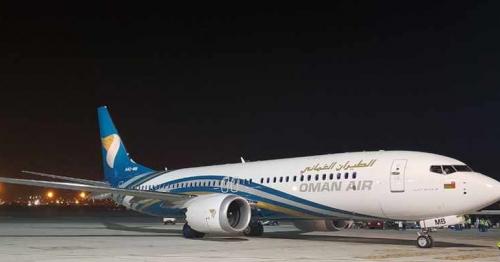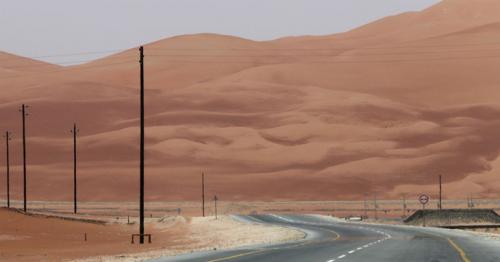A guide to studying abroad in Oman
A country set in the Middle East, which played a big part in the development of early civilizations, with a diverse culture that mixes Middle Eastern, Indian, and African cultures; studying abroad in Oman is the experience of a lifetime. Located in the edge of Arabian Peninsula, The Sultanate of Oman boasts dramatic landscapes, medieval cities, intricate architecture, and long beaches. Not to mention, Omanis are famous for being hospitable and kind. The country has proved to be an ideal setting for both Arabic language and cultural studies too. Students who enjoy cultural immersion and want the chance to take quick nature trips on the side will surely enjoy study abroad in Oman.
LOCATIONS
Muscat, the capital of Oman, is a home of several universities offering international students the chance to study abroad in Oman. There are a wide selection of courses offered by both universities and private institutions in Muscat. As a major trading port of the east and the west since 1st century, Muscat is full of interesting sites right in the heart of the city.
Sultan Qaboos University aspires to be an outstanding centre of science and research, and seeks to achieve excellence while serving as a meeting point for national and international communities. The university has five colleges: Medicine, Engineering, Agriculture, Education and Science, and specializes in high quality education, research, community service, and innovation in its programs.
Study abroad programs in Muscat are typically available all year round and often focus on Arabic language studies, and excursions to other parts of the country are not uncommon either. Since most opportunities to study abroad in Muscat are administered as a joint American-Omani university program, it is able to provide internationally recognized academic credit.
Sohar is the capital city in the northern territory of Oman, and once served as an important Islamic port town. Its development of the Sohar Industrial Port has transformed it into an industrial hub today; hence, Sohar is one of the largest cities in the country.
Sohar University was the first private university established in Oman. Its principal aim is to provide high quality education to residents of Oman and international students in the faculties of Business, Computing and Information Technology, Engineering, and Humanities and Social Sciences. In 2001, Sohar University became affiliated with the University of Queensland in the UK to ensure that its academe can continue to meet international standards.
Ibri is a regional capital of Dhahira, Oman, and known to be one of the sites of the country’s earliest human habitation. Ibri has long been a strategic crossroad between Oman and other Gulf states, thus, it has a long history as a trade route for caravans, which its name literally translates to as Ibri means “point of transit”.
Salalah, capital of the southernmost province Dhofar, has a glorious history and heritage sites of nature, rich culture, traditions, and economic development.
STUDYING ABROAD IN OMAN
For such a small country, there are plenty of options when it comes to studying abroad in Oman, whether it’s academic credit toward a university degree, short term language and cultural immersion, or a study abroad tour program.
Arabic Language & Culture. For students interested in Arabic language studies, there are several institutions providing intensive Arabic language programs for international students. These courses are made to fit the needs of students so they can come to easily understand the language; not to mention, faculty teaching most Arabic language courses have specific university degrees in Arabic language studies, linguistics, second language acquisition, or curriculum development most often.
Arabic language immersion, homestays, and living in an Arabic speaking environment will definitely allow students to enjoy studying abroad in Oman more fully. There are a range of choices for study abroad in Oman; students can even choose to live in an all Arabic speaking city with first-hand Islamic teachings in daily life, traditional clothes, food, and Arabic as their means of communication. For some international institutions located in the lesser populated cities, host families are common and give students the chance to live with an Omani family that speaks very limited English, therefore students are forced to truly develop their language skills. Through homestays and full immersion study abroad programs in Oman, students can definitely enjoy the Omani lifestyle.
Study Tours. Oman is becoming a popular destination for study tour programs. For years, administrators have built reputable programs that give students an extensive experience during their time in Oman, while at the same time allowing them to enjoy exploring the country and culture. These study tour programs in Oman are well designed to immerse students in the Omani way of life by providing tours in multiple cities and showcasing the nation’s highlights, including desert safaris, UNESCO heritage sites, the old city, and local markets.
Structure. For private institutions, classes usually have a limited number of students allowed in each program or course. If studying abroad in Oman at a private institution, students’ interaction and progress will be given close attention. While English is the medium of instruction for most classes in Oman, it is truly best to learn the local language so you are able to interact with the local community.
Schedule. Typically, the school year in Oman is divided into two semesters. The first starts in early September until middle of January, while the second runs from early February to late May, with an examination at the end of each semester. Students can get the optional three months of vacation from June to August with the national holidays throughout the year. For short term study abroad programs in Oman, students come flocking in during the coldest months in the country. Highest temperatures reach up to 50 degrees celsius (122.0 degrees fahrenheit) during the hottest part of the year, from May to September, while the rest of the months are colder (but still mostly warm!).
...[ Continue to next page ]
Share This Post






